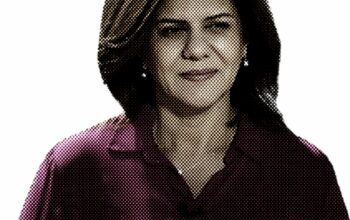To investigate more in-depth the importance of fat checking It is fundamental to move beyond recent narratives of “facts” and “fake news” and immediate political circumstances, to emphasize fact-checking position in a wider consideration of human nature, interaction, and our inter-relatedness. Simply put, fact-checking is a form of critical, investigative inquiry. It includes a wide range of approaches and practices. But there is a history behind fact-checking and the contemporary need for it.
The spread of misinformation is an inherently human phenomenon. Daniel Kahneman, a psychologist who won the Nobel prize in economic sciences, introduced the concept of “WYSIATI” (What you see is all there is), meaning that we tend not to look for what we do not see. We rather rely on the information that is directly available to us, without being fully aware of what we do not know. If we just see some elements of a story, we construct the best story we can out of those partial elements building our knowledge on them. Part of the approach of fact-checking is the awareness of the cognitive biases innate to each of us. While these biases help us navigate everyday life, they can lead us to overlook and disregard relevant facts, even when they are clearly presented. The use of facts and storytelling as a tool of political mobilization has been a long-established means to persuade the public of a group consensus.
The role of a journalist nowadays is in fact to provide daily information: to provide accurate testimony of the political and social realm. But reality goes beyond these information’s; it includes the availability of information from a variety of sources and ideological perspective. We weave these stories into a comprehensive meaning for ourselves. The network effect and availability of social media has more than ever broadened the sources of information and thus the construction of our narratives. Social media has also removed a primary filter of journalists as the establishment of truth teller. Some politicians and opinion makers have seized upon this opportunity as an exercise of power.

The political thinker, Hannah Arendt, explained how this manipulation can occur, through the interplay of facts, opinion, and power. So, what is the relationship between facts and opinions? Opinions can be informed by facts, or by the purposeful denial of them if a group consensus pushes in that direction. And nowadays, social media networks present a powerful tool to manipulate consent. Herd behavior which occurs when people follow the behavior of others on the assumption that “these many people can’t be wrong”, can make us behave in conformist ways to the point of censuring and cancelling potential dissenters.
Therefore, in recent years, fact-checking has become more prevalent and needed in journalism. This is reflected in the increasing numbers of fact-checking organizations and online platforms being established internationally in the latest 10 years. While often considered as a journalistic pursuit aligned to established media outlets, it has also been the focus of work by NGOs, charities, and non-media aligned organizations. Approaches to fact-checking practices vary accordingly, with many organisations adhering to a commitment to “facts” and their dissemination while differing in how the processes of fact-checking are undertaken in terms of how the factchecking itself is communicated.
As it ever was, fact-checking is no guarantee against a group of people deciding to ignore the evidence of factual truths, but without the effort of fact-checking, we surrender each of our reality to others. Fact checking emphasizes that we should remain skeptical for our own survival. Nowadays fat checking journalism basically represents the newspapers commitment to the public service and it is the readers platforms all over the world that can create newsroom culture that allow watchdog culture to flourish and thriving. This is even more true in this era in which the social pressure on media outlets to deliver and achieve the highest standards and fairness of media coverage has reached a new high Even if the role of watchdog journalism is more than needed currently at the same time establishing a watchdog culture is a matter of both perception and reality.
Oxford Dictionaries’ International Word of the Year for 2016 was “post-truth,” defined as “relating to or denoting circumstances in which objective facts are less influential in shaping public opinion than appeals to emotion and personal belief. This spike was driven of course by the rise of social media as a news source, and a growing distrust of facts offered up by the establishment. Numerous scientific studies have confirmed what is obvious to anyone who has discussed politics with a committed partisan: facts rarely matter to an already politically persuaded person who already made up his or her mind.
Most of us are familiar with the concept of cognitive bias, where people seek only information that confirms their preconceived opinions. Even when shown neutral news coverage of a political issue, biased readers are likely to view the coverage hostile to their perspective, choosing to rather focus their attention on the parts of the story that don’t conform to their way of thinking. This is the problem facing fact-checking organizations today. The audience that most needs to hear the fact-checkers’ conclusions — the ideological partisans — often are the people least likely to believe them or to actively search for this kind of information online.
Recent polls have shown trust in the media to be near an all-time low. Political activists have determined that they don’t like the news coming from fact-checking organizations and the mainstream media, so they dismiss their reporting altogether. As a result, popular websites and social media accounts have been created with the expressed purpose of undermining the conclusions of fact-checking organizations.
Although it may not be a complete inoculation against misinformation, the existence of fact-checking organizations of course prevents some politicians when considering whether to convey dubious information. The ability to provide real-time fact-checks during political debates and major speeches for instance, as well as factual refutations of social media posts and interview responses, provides a great public benefit to people who are willing to consider new information when deciding how to vote. Without fact-checking websites, it would be much more difficult to find accurate and reliable information about claims made by political leaders.
The explosion of pay-per-click hoax news stories on social media has made it easier than ever for a bogus claim to go viral. Fact-checking sites are there to refute such fake news, ensuring it doesn’t go unchallenged. Unfortunately, this problem is about to get much worse. When considering the views of ideologically extreme partisans who dismiss the legitimacy of fact-checking organizations, remember that their positions are driven by cognitive bias. Those partisans are not going to change their minds, and they will not accept alternative viewpoints. Fact-checks will not persuade them, but that doesn’t make those fact-checks any less true. Yes, read each fact-check with a critical eye, and take the time to learn more about the facts that are in dispute.
Use the fact-checks as a way to review available information, and then come to your own conclusion. In today’s ultra-polarized environment, it is more important than ever that such unbiased sources of information are available.



